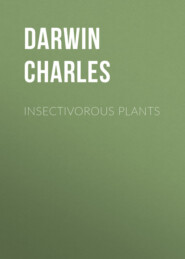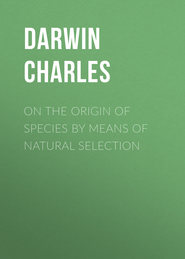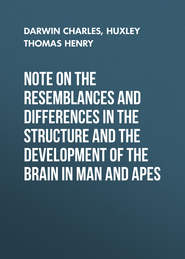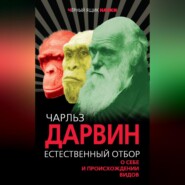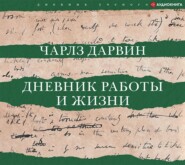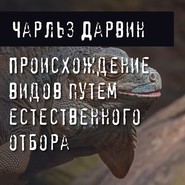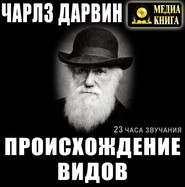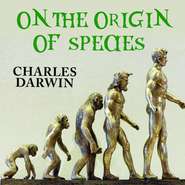По всем вопросам обращайтесь на: info@litportal.ru
(©) 2003-2024.
✖
Charles Darwin: His Life Told in an Autobiographical Chapter, and in a Selected Series of His Published Letters
Настройки чтения
Размер шрифта
Высота строк
Поля
Dear Sir, – In answer to your courteous letter of April 7, I have no objection to express my opinion with respect to the right of experimenting on living animals. I use this latter expression as more correct and comprehensive than that of vivisection. You are at liberty to make any use of this letter which you may think fit, but if published I should wish the whole to appear. I have all my life been a strong advocate for humanity to animals, and have done what I could in my writings to enforce this duty. Several years ago, when the agitation against physiologists commenced in England, it was asserted that inhumanity was here practised, and useless suffering caused to animals; and I was led to think that it might be advisable to have an Act of Parliament on the subject. I then took an active part in trying to get a Bill passed, such as would have removed all just cause of complaint, and at the same time have left physiologists free to pursue their researches – a Bill very different from the Act which has since been passed. It is right to add that the investigation of the matter by a Royal Commission proved that the accusations made against our English physiologists were false. From all that I have heard, however, I fear that in some parts of Europe little regard is paid to the sufferings of animals, and if this be the case, I should be glad to hear of legislation against inhumanity in any such country. On the other hand, I know that physiology cannot possibly progress except by means of experiments on living animals, and I feel the deepest conviction that he who retards the progress of physiology commits a crime against mankind. Any one who remembers, as I can, the state of this science half a century ago must admit that it has made immense progress, and it is now progressing at an ever-increasing rate. What improvements in medical practice may be directly attributed to physiological research is a question which can be properly discussed only by those physiologists and medical practitioners who have studied the history of their subjects; but, as far as I can learn, the benefits are already great. However this may be, no one, unless he is grossly ignorant of what science has done for mankind, can entertain any doubt of the incalculable benefits which will hereafter be derived from physiology, not only by man, but by the lower animals. Look for instance at Pasteur's results in modifying the germs of the most malignant diseases, from which, as it happens, animals will in the first place receive more relief than man. Let it be remembered how many lives and what a fearful amount of suffering have been saved by the knowledge gained of parasitic worms through the experiments of Virchow and others on living animals. In the future every one will be astonished at the ingratitude shown, at least in England, to these benefactors of mankind. As for myself, permit me to assure you that I honour, and shall always honour, every one who advances the noble science of physiology.
Dear Sir, yours faithfully
In the Times of the following day appeared a letter headed "Mr. Darwin and Vivisection," signed by Miss Frances Power Cobbe. To this my father replied in the Times of April 22, 1881. On the same day he wrote to Mr. Romanes: —
"As I have a fair opportunity, I sent a letter to the Times on Vivisection, which is printed to-day. I thought it fair to bear my share of the abuse poured in so atrocious a manner on all physiologists."
C. D. to the Editor of the 'Times.'
Sir, – I do not wish to discuss the views expressed by Miss Cobbe in the letter which appeared in the Times of the 19th inst.; but as she asserts that I have "misinformed" my correspondent in Sweden in saying that "the investigation of the matter by a Royal Commission proved that the accusations made against our English physiologists were false," I will merely ask leave to refer to some other sentences from the report of the Commission.
(1.) The sentence – "It is not to be doubted that inhumanity may be found in persons of very high position as physiologists," which Miss Cobbe quotes from page 17 of the report, and which, in her opinion, "can necessarily concern English physiologists alone and not foreigners," is immediately followed by the words "We have seen that it was so in Magendie." Magendie was a French physiologist who became notorious some half century ago for his cruel experiments on living animals.
(2.) The Commissioners, after speaking of the "general sentiment of humanity" prevailing in this country, say (p. 10): —
"This principle is accepted generally by the very highly educated men whose lives are devoted either to scientific investigation and education or to the mitigation or the removal of the sufferings of their fellow-creatures; though differences of degree in regard to its practical application will be easily discernible by those who study the evidence as it has been laid before us."
Again, according to the Commissioners (p. 10): —
"The secretary of the Royal Society for the Prevention of Cruelty to Animals, when asked whether the general tendency of the scientific world in this country is at variance with humanity, says he believes it to be very different indeed from that of foreign physiologists; and while giving it as the opinion of the society that experiments are performed which are in their nature beyond any legitimate province of science, and that the pain which they inflict is pain which it is not justifiable to inflict even for the scientific object in view, he readily acknowledges that he does not know a single case of wanton cruelty, and that in general the English physiologists have used anæsthetics where they think they can do so with safety to the experiment."
I am, Sir, your obedient servant.
April 21.
During the later years of my father's life there was a growing tendency in the public to do him honour.[257 - In 1867 he had received a distinguished honour from Germany, – the order "Pour le Mérite."] The honours which he valued most highly were those which united the sympathy of friends with a mark of recognition of his scientific colleagues. Of this type was the article "Charles Darwin," published in Nature, June 4, 1874, and written by Asa Gray. This admirable estimate of my father's work in science is given in the form of a comparison and contrast between Robert Brown and Charles Darwin.
To Gray he wrote: —
"I wrote yesterday and cannot remember exactly what I said, and now cannot be easy without again telling you how profoundly I have been gratified. Every one, I suppose, occasionally thinks that he has worked in vain, and when one of these fits overtakes me, I will think of your article, and if that does not dispel the evil spirit, I shall know that I am at the time a little bit insane, as we all are occasionally.
"What you say about Teleology[258 - "Let us recognise Darwin's great service to Natural Science in bringing back to it Teleology; so that instead of Morphology versus Teleology, we shall have Morphology wedded to Teleology." Similar remarks had been previously made by Mr. Huxley. See Critiques and Addresses, p. 305.] pleases me especially, and I do not think any one else has ever noticed the point. I have always said you were the man to hit the nail on the head."
In 1877 he received the honorary degree of LL.D. from the University of Cambridge. The degree was conferred on November 17, and with the customary Latin speech from the Public Orator, concluding with the words: "Tu vero, qui leges naturæ tam docte illustraveris, legum doctor nobis esto."
The honorary degree led to a movement being set on foot in the University to obtain some permanent memorial of my father. In June 1879 he sat to Mr. W. Richmond for the portrait in the possession of the University, now placed in the Library of the Philosophical Society at Cambridge.
A similar wish on the part of the Linnean Society – with which my father was so closely associated – led to his sitting in August, 1881, to Mr. John Collier, for the portrait now in the possession of the Society. The portrait represents him standing facing the observer in the loose cloak so familiar to those who knew him, with his slouch hat in his hand. Many of those who knew his face most intimately, think that Mr. Collier's picture is the best of the portraits, and in this judgment the sitter himself was inclined to agree. According to my feeling it is not so simple or strong a representation of him as that given by Mr. Ouless. The last-named portrait was painted at Down in 1875; it is in the possession of the family,[259 - A replica by the artist hangs alongside of the portraits of Milton and Paley in the hall of Christ's College, Cambridge.] and is known to many through Rajon's fine etching. Of Mr. Ouless's picture my father wrote to Sir J. D. Hooker:
"I look a very venerable, acute, melancholy old dog; whether I really look so I do not know."
Besides the Cambridge degree, he received about the same time honours of an academic kind from some foreign societies.
On August 5, 1878, he was elected a Corresponding Member of the French Institute in the Botanical Section,[260 - He received twenty-six votes out of a possible thirty-nine, five blank papers were sent in, and eight votes were recorded for the other candidates. In 1872 an attempt had been made to elect him in the Section of Zoology, when, however, he only received fifteen out of forty-eight votes, and Lovén was chosen for the vacant place. It appears (Nature, August 1st, 1872) that an eminent member of the Academy wrote to Les Mondes to the following effect: —"What has closed the doors of the Academy to Mr. Darwin is that the science of those of his books which have made his chief title to fame – the Origin of Species, and still more the Descent of Man, is not science, but a mass of assertions and absolutely gratuitous hypotheses, often evidently fallacious. This kind of publication and these theories are a bad example, which a body that respects itself cannot encourage."] and wrote to Dr. Asa Gray: —
"I see that we are both elected Corresponding Members of the Institute. It is rather a good joke that I should be elected in the Botanical Section, as the extent of my knowledge is little more than that a daisy is a Compositous plant and a pea a Leguminous one."
He valued very highly two photographic albums containing portraits of a large number of scientific men in Germany and Holland, which he received as birthday gifts in 1877.
In the year 1878 my father received a singular mark of recognition in the form of a letter from a stranger, announcing that the writer intended to leave to him the reversion of the greater part of his fortune. Mr. Anthony Rich, who desired thus to mark his sense of my father's services to science, was the author of a Dictionary of Roman and Greek Antiquities, said to be the best book of the kind. It has been translated into French, German, and Italian, and has, in English, gone through several editions. Mr. Rich lived a great part of his life in Italy, painting, and collecting books and engravings. He finally settled, many years ago, at Worthing (then a small village), where he was a friend of Byron's Trelawny. My father visited Mr. Rich at Worthing, more than once, and gained a cordial liking and respect for him.
Mr. Rich died in April, 1891, having arranged that his bequest[261 - Mr. Rich leaves a single near relative, to whom is bequeathed the life-interest in his property.] should not lapse in consequence of the predecease of my father.
In 1879 he received from the Royal Academy of Turin the Bressa Prize for the years 1875-78, amounting to the sum of 12,000 francs. He refers to this in a letter to Dr. Dohrn (February 15th, 1880): —
"Perhaps you saw in the papers that the Turin Society honoured me to an extraordinary degree by awarding me the Bressa Prize. Now it occurred to me that if your station wanted some piece of apparatus, of about the value of £100, I should very much like to be allowed to pay for it. Will you be so kind as to keep this in mind, and if any want should occur to you, I would send you a cheque at any time."
I find from my father's accounts that £100 was presented to the Naples Station.
Two years before my father's death, and twenty-one years after the publication of his greatest work, a lecture was given (April 9, 1880) at the Royal Institution by Mr. Huxley[262 - Published in Science and Culture, p. 310.] which was aptly named "The Coming of Age of the Origin of Species." The following characteristic letter, inferring to this subject, may fitly close the present chapter.
Abinger Hall, Dorking, Sunday, April 11, 1880.
My dear Huxley, – I wished much to attend your Lecture, but I have had a bad cough, and we have come here to see whether a change would do me good, as it has done. What a magnificent success your lecture seems to have been, as I judge from the reports in the Standard and Daily News, and more especially from the accounts given me by three of my children. I suppose that you have not written out your lecture, so I fear there is no chance of its being printed in extenso. You appear to have piled, as on so many other occasions, honours high and thick on my old head. But I well know how great a part you have played in establishing and spreading the belief in the descent-theory, ever since that grand review in the Times and the battle royal at Oxford up to the present day.
Ever, my dear Huxley,
Yours sincerely and gratefully,
Charles Darwin.
P.S. – It was absurdly stupid in me, but I had read the announcement of your Lecture, and thought that you meant the maturity of the subject, until my wife one day remarked, "it is almost twenty-one years since the Origin appeared," and then for the first time the meaning of your words flashed on me.
BOTANICAL WORK
"I have been making some little trifling observations which have interested and perplexed me much."
From a letter of June 1860.
CHAPTER XVI.
FERTILISATION OF FLOWERS
The botanical work which my father accomplished by the guidance of the light cast on the study of natural history by his own work on evolution remains to be noticed. In a letter to Mr. Murray, September 24th, 1861, speaking of his book the Fertilisation of Orchids, he says: "It will perhaps serve to illustrate how Natural History may be worked under the belief of the modification of species." This remark gives a suggestion as to the value and interest of his botanical work, and it might be expressed in far more emphatic language without danger of exaggeration.
In the same letter to Mr. Murray, he says: "I think this little volume will do good to the Origin, as it will show that I have worked hard at details." It is true that his botanical work added a mass of corroborative detail to the case for Evolution, but the chief support given to his doctrines by these researches was of another kind. They supplied an argument against those critics who have so freely dogmatised as to the uselessness of particular structures, and as to the consequent impossibility of their having been developed by means of natural selection. His observations on Orchids enabled him to say: "I can show the meaning of some of the apparently meaningless ridges and horns; who will now venture to say that this or that structure is useless?" A kindred point is expressed in a letter to Sir J. D. Hooker (May 14th, 1862): —
"When many parts of structure, as in the woodpecker, show distinct adaptation to external bodies, it is preposterous to attribute them to the effects of climate, &c., but when a single point alone, as a hooked seed, it is conceivable it may thus have arisen. I have found the study of Orchids eminently useful in showing me how nearly all parts of the flower are co-adapted for fertilisation by insects, and therefore the results of natural selection, – even the most trifling details of structure."
One of the greatest services rendered by my father to the Study of Natural History is the revival of Teleology. The evolutionist studies the purpose or meaning of organs with the zeal of the older Teleologist, but with far wider and more coherent purpose. He has the invigorating knowledge that he is gaining not isolated conceptions of the economy of the present, but a coherent view of both past and present. And even where he fails to discover the use of any part, he may, by a knowledge of its structure, unravel the history of the past vicissitudes in the life of the species. In this way a vigour and unity is given to the study of the forms of organised beings, which before it lacked. Mr. Huxley has well remarked:[263 - The "Genealogy of Animals" (The Academy, 1869), reprinted in Critiques and Addresses.] "Perhaps the most remarkable service to the philosophy of Biology rendered by Mr. Darwin is the reconciliation of Teleology and Morphology, and the explanation of the facts of both, which his views offer. The teleology which supposes that the eye, such as we see it in man, or one of the higher vertebrata, was made with the precise structure it exhibits, for the purpose of enabling the animal which possesses it to see, has undoubtedly received its death-blow. Nevertheless, it is necessary to remember that there is a wider teleology which is not touched by the doctrine of Evolution, but is actually based upon the fundamental proposition of Evolution."
The point which here especially concerns us is to recognise that this "great service to natural science," as Dr. Gray describes it, was effected almost as much by Darwin's special botanical work as by the Origin of Species.
For a statement of the scope and influence of my father's botanical work, I may refer to Mr. Thiselton Dyer's article in 'Charles Darwin,' one of the Nature Series. Mr. Dyer's wide knowledge, his friendship with my father, and his power of sympathising with the work of others, combine to give this essay a permanent value. The following passage (p. 43) gives a true picture: —
"Notwithstanding the extent and variety of his botanical work, Mr. Darwin always disclaimed any right to be regarded as a professed botanist. He turned his attention to plants, doubtless because they were convenient objects for studying organic phenomena in their least complicated forms; and this point of view, which, if one may use the expression without disrespect, had something of the amateur about it, was in itself of the greatest importance. For, from not being, till he took up any point, familiar with the literature bearing on it, his mind was absolutely free from any prepossession. He was never afraid of his facts, or of framing any hypothesis, however startling, which seemed to explain them… In any one else such an attitude would have produced much work that was crude and rash. But Mr. Darwin – if one may venture on language which will strike no one who had conversed with him as over-strained – seemed by gentle persuasion to have penetrated that reserve of nature which baffles smaller men. In other words, his long experience had given him a kind of instinctive insight into the method of attack of any biological problem, however unfamiliar to him, while he rigidly controlled the fertility of his mind in hypothetical explanations by the no less fertility of ingeniously devised experiment."
To form any just idea of the greatness of the revolution worked by my father's researches in the study of the fertilisation of flowers, it is necessary to know from what a condition this branch of knowledge has emerged. It should be remembered that it was only during the early years of the present century that the idea of sex, as applied to plants, became firmly established. Sachs, in his History of Botany[264 - An English edition is published by the Clarendon Press, 1890.] (1875), has given some striking illustrations of the remarkable slowness with which its acceptance gained ground. He remarks that when we consider the experimental proofs given by Camerarius (1694), and by Kölreuter (1761-66), it appears incredible that doubts should afterwards have been raised as to the sexuality of plants. Yet he shows that such doubts did actually repeatedly crop up. These adverse criticisms rested for the most part on careless experiments, but in many cases on a priori arguments. Even as late as 1820, a book of this kind, which would now rank with circle squaring, or flat-earth philosophy, was seriously noticed in a botanical journal. A distinct conception of sex, as applied to plants, had, in fact, not long emerged from the mists of profitless discussion and feeble experiment, at the time when my father began botany by attending Henslow's lectures at Cambridge.







